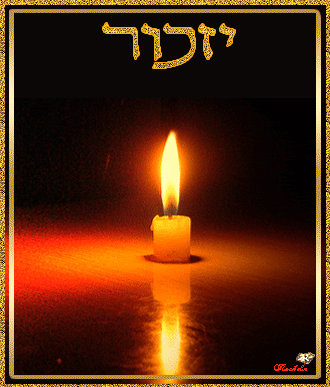By Moshe Dann
Prime Minister Netanyahu has called upon Palestinian leaders to recognize the right of the Jewish people to national self-determination – "two states for two nations." But are Palestinian Arabs a nation, or a people? What is "Palestinian national identity" based on? Although taken for granted today, Palestinianism has neither a long, nor distinguished history, which may explain why the peace process between Israel and the Arabs has failed and will continue to fail.
Palestinianism, inherently meant only one thing: the rejection of a Jewish state in any form. A few elite Arab intellectuals did talk about Palestinianism, but it was not widely accepted. As Columbia University Professor Rashid Khalidi shows in his book on the subject, not until Zionists began settlements did local Arabs seek an alternative.
Focused on opposition to Zionists, rather than a positive self-definition, "Palestinian identity" then, as now, was negative. Palestinian leaders, like the mufti of Jerusalem, Hajj Amin al-Husayni, an ardent supporter of the Nazis, and arch-terrorist Yasser Arafat - "fathers" of Palestinianism - rejected Zionism and promoted terrorism.
Anti-colonial and anti-Zionist uprisings against British rule were not directed towards another independent Palestinian state. Nor were Arab riots and pogroms, like those in 1929, 1936, for example, nationalistic. There were no calls for a Palestinian state; the battle cry was, "Kill the Jews."
Arab leaders like Auni Bey Abdul-Hadi told the Peel Commission in 1937: "There is no such country as 'Palestine'; 'Palestine' is a term the Zionists invented!"
During the 1930s, anti-British and anti-Jewish riots were enflamed by the newly created "Arab – not Palestinian - Higher Committee," the central political organ of the Arab community of Mandate Palestine.
In 1946, Arab historian Philip Hitti testified before the Anglo-American Committee of Inquiry that "there is no such thing as Palestine in history.” In 1947, Arab leaders protesting the UN partition plan argued that Palestine was part of Syria and “politically, the Arabs of Palestine (were) not (an) independent separate … political entity.”
In 1947, the UN proposed a "Jewish" State and an "Arab" – not Palestinian – State. Efforts to organize a political leadership in 1948, in response to the establishment of Israel, soon collapsed.
The womb of Palestinianism was war, the Nakba (catastrophe) in the Arab narrative, the establishment of the State of Israel. Five well-armed Arab countries invaded the nascent state, joining local Arab gangs and militias in a genocidal war to exterminate the Jews. This was not seen as a war for Palestinian nationalism, however; it was a genocidal war against Jews and Zionism itself.
‘Palestinians’ used to be Jews
Arab gangs that attacked Jews in 1947/8 were called the "Arab - not Palestinian - Army of Liberation." The reason is that prior to Israel's establishment, the notion of a "Palestinian people" was irrelevant, since Arab affiliations are primarily familial and tribal – not national. And also because "Palestinian" meant something else back then.
Before 1948, those who were called (and called themselves) "Palestinians" were Jews, not Arabs, although both carried the same British passports. In fact, only after Jews in Palestine called themselves Israelis, in 1948, could Arabs adopt "Palestinian" as theirs exclusively. Indeed, the central organ of the pre-Israel Jewish community was called "The Palestine Post" – later changed to the Jerusalem Post.
The establishment of UNRWA in 1949 to provide for Arab refugees provided the institutional structure to build and preserve the idea of an "Arab Palestinian people" – and their "right of return." Today, in 58 camps, with an annual budget of nearly a billion dollars, the residents are indoctrinated with hatred and Israel's eventual destruction. Except in Jordan, which granted most citizenship, the residents of these UNRWA towns are severely restricted and denied basic human and civil rights.
Were it not for UNRWA, there would probably be no "Palestinian refugee" problem today. The problem is UNRWA's controversial definition of "Arab refugee," which includes anyone who claimed residence in Palestine since 1946, regardless of their origin; this date is important because it marks the high point of a massive influx of Arabs from the region into Palestine, primarily due to employment opportunities and a higher standard of living.
This category of "refugees" was different from all others in that it included not only those who applied in 1949, but all of their descendents, forever, with full rights and privileges; the total population is expected to reach seven or eight million next year, and keeps growing. This is one of the core issues preventing any resolution of the Arab-Israeli conflict. UNRWA's existence, therefore, perpetuates the conflict, prevents Israel's acceptance, and breeds violence and terrorism.
Palestinianism was defined in 1964, in the PLO Covenant, when Jordan occupied "the West Bank," a Jordanian reference from 1950 to distinguish the area from the East Bank of the Jordan River, and Egypt held the Gaza Strip. On behalf of the "Palestinian Arab people," the Covenant declared their goal: a "holy war" (Jihad) to "liberate Palestine," i.e. destroy Israel. There was no mention of Arabs living in "the West Bank" and Gaza Strip, since that would have threatened Arab rulers. Arab "refugees" were convenient proxies in the war against Israel; Palestinianism became a replacement nationalism for Zionism, a call to arms against Jews.
Solution is regional
This balancing act was no longer necessary after 1967, when Israel acquired areas that had been originally assigned to a Jewish State by the League of Nations and British Mandate - Judea, Samaria, eastern Jerusalem, and the Gaza Strip - and the Golan Heights, all rich in Jewish history and archeology. A year later, the PLO Covenant was amended to cover both "occupations" – in 1948 and 1967.
Dedicated to armed struggle, its goal has never changed; unable to defeat Israel militarily, however, the Arab strategy is to demonize and delegitimize, creating yet another Arab Palestinian state, in addition to Jordan. In order to accomplish this, it concocted a narrative, an identity and ethos to compete with Zionism and Jewish history: Palestinianism.
Presented in the PLO Covenant and Hamas Charter (1988), the purpose of Palestinianism is to "liberate Palestine" and destroy Israel; neither reflect any redeeming social or cultural values.
"Palestinianism" lacks the basic requirements of legitimate national identity: a separate, unique linguistic, cultural, ethnic, or religious basis; it is nothing more than a political-military construct, currently led by Fatah and Hamas terrorist organizations. However, it became legitimized by the UN.
Despite mega-terrorist attacks and, backed by the Arab League, Muslim and "non-aligned" countries, the PLO was accepted by the United Nations in 1974. The following year, the UN passed its infamous "Zionism is Racism" resolution, sanctioning Israel's demonization, and setting the UN on a course of Israel's destruction.
The myth of Palestinianism worked because the media accepted Arab and PLO claims and their cause. Nearly all media, for example, use the term "Palestinian," or "Israeli-occupied West Bank," reinforcing Palestinian claims, rather than the authentic designation which appears on earlier maps, Judea and Samaria, referring to its Jewish history. The term "West Bank" is a political, not geographic statement.
By the early 1990s, some Israeli politicians, Left-dominated media, academia, cultural elite and some jurists accepted "Palestinianism as a way of expressing their opposition to "settlements," and hoping for some sort of mutual recognition with the PLO. Their efforts culminated in the Oslo Accords (1993), which gave official Israeli sanction to Palestinianism.
Anti-Israel academics around the world promote "Palestinian" archeology, society and culture as a brand name, and a political message. Advertising works; every time someone uses the term "Palestinian," it acknowledges and reinforces this myth. Palestinianism, however, regardless of its lack of historical, cultural and societal roots, is now well-established as a political identity that demands sovereign rights and a territorial base. The question seems to be not if, but where.
The solution is regional. Arab Palestinians are entitled to civil and human rights in their host countries where they have lived for generations. A second Arab Palestinian state, in addition to Jordan, which was carved out of Palestine in 1922 - whose population is two-thirds "Palestinian" - will not resolve any core issue at the heart of the conflict. The conflict is not territorial, but existential; recognition of a Jewish state is anathema. That explains why Palestinian Arab leaders refuse to accept it in any form.
The problem, for Palestinianism, is not "the occupation" in 1967, but Israel's existence; seen as an exclusively Arab homeland, Palestine is an integral part of the Arab world, completely under Arab sovereignty. This is axiomatic; there are no exceptions and no compromises.
Promoted in media, mosques and schools, anti-Jewish incitement, denial of the Holocaust and Jewish history, and rejection of the right of Jewish national self-determination, by definition, Palestinianism is the greatest obstacle to peace.


Ynet News






No comments:
Post a Comment